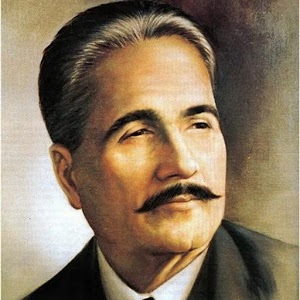


Introduction – Allama Muhammad Iqbal
Sir Allama Muhammad Iqbal was a bard, theorist, government official, and in addition a scholastic, lawyer and researcher in British India who is broadly viewed as having propelled the Pakistan Movement. He is known as the “Spiritual father of Pakistan”. He is viewed as one of the greatest significant figures in Urdu literature, with legendary effort in both the Urdu and Persian dialects. He was commonly recognized as Allama Iqbal.
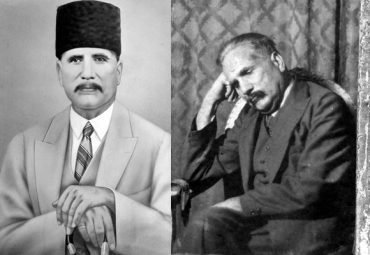

 Iqbal is appreciated as a conspicuous poet by Pakistanis, Iranians, Indians, Bangladeshis, Sri Lankans and other worldwide researchers of writing. In spite of the fact that Allama Muhammad Iqbal is superlative branded as a prominent bard, he is likewise an exceedingly acclaimed “Muslim philosophical mastermind of current circumstances”.
Iqbal is appreciated as a conspicuous poet by Pakistanis, Iranians, Indians, Bangladeshis, Sri Lankans and other worldwide researchers of writing. In spite of the fact that Allama Muhammad Iqbal is superlative branded as a prominent bard, he is likewise an exceedingly acclaimed “Muslim philosophical mastermind of current circumstances”.
His first verse book, Asrar-e-Khudi, showed up in the Persian dialect in 1915, and different books of verse include Rumuz-i-Bekhudi, Payam-i-Mashriq and Zabur-i-Ajam. Surrounded by these, his acclaimed Urdu works are Bang-i-Dara, Bal-i-Jibril, Zarb-iKalim and a piece of Armughan-e-Hijaz. Alongside his Urdu and Persian verse, his Urdu and English addresses and letters have been extremely powerful in traditional, social, spiritual and governmental arguments.



In 1922, he was honored by King George V, giving him the title “Sir”. For the period of examining law and theory in England, Allama Muhammad Iqbal turned into an individual from the London area office of the All-India Muslim League. After that during the December 1930 session of the league, he conveyed his most eminent diplomatic speaking recognized as the Allahabad Address in which he emphasized for the establishment of a Muslim state in Northwest India. In quite a bit of South Asia and the places where Urdu is spoken, Iqbal is viewed as the”Poet of the East”. He is additionally called “The Thinker of Pakistan”, and “The Sage of the Ummah”. The Pakistan government authoritatively named him a “national poet”. His birthday or Iqbal Day, is an open occasion in Pakistan. In India he is additionally recognized as the creator of the famous tune Saare Jahaan Se Acha.
Personal Life
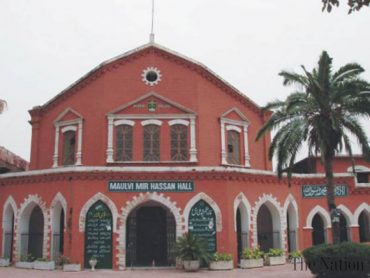

 Allama Muhammad Iqbal was born on November 9, 1877 in Sialkot, inside the Punjab province of British India. His grandparents were Kashmiri Pandits, who changed over to Islam. In the nineteenth century, when the Sikh Empire was overcoming Kashmir, his granddad’s family moved to Punjab. Iqbal regularly said and recognized his Kashmiri Pandit Brahmin genealogy in his works. Iqbal’s dad, Sheikh Noor Muhammad who was passed on in the year 1930, was a tailor, not formally taught but rather a religious man. Iqbal’s mom Imam Bibi was a gracious and humble lady who helped poor people and tackled the issues of neighbors. She passed away on 9 November 1914 in Sialkot. Iqbal adored his mother, and on her passing away he conveyed his emotional state of sorrow in a rhythmical form poem. Iqbal was at the age of four years when he was sent to the mosque to study the Holy Qur’an. He learned the Arabic dialect from his educator Syed Mir Hassan, the leader of the madrassa and teacher of Arabic dialect at Scotch Mission College in Sialkot, from where he did his matriculation in 1893. He completed his intermediate from Government College Lahore where he got his Bachelor of Arts in theory, English writing and Arabic in 1897, and won the Khan Bahadurddin F.S. Jalaluddin decoration as he took higher marks in Arabic course. In 1899, he got his Masters of Arts degree from a similar college and had the primary spot in Punjab University, Lahore.
Allama Muhammad Iqbal was born on November 9, 1877 in Sialkot, inside the Punjab province of British India. His grandparents were Kashmiri Pandits, who changed over to Islam. In the nineteenth century, when the Sikh Empire was overcoming Kashmir, his granddad’s family moved to Punjab. Iqbal regularly said and recognized his Kashmiri Pandit Brahmin genealogy in his works. Iqbal’s dad, Sheikh Noor Muhammad who was passed on in the year 1930, was a tailor, not formally taught but rather a religious man. Iqbal’s mom Imam Bibi was a gracious and humble lady who helped poor people and tackled the issues of neighbors. She passed away on 9 November 1914 in Sialkot. Iqbal adored his mother, and on her passing away he conveyed his emotional state of sorrow in a rhythmical form poem. Iqbal was at the age of four years when he was sent to the mosque to study the Holy Qur’an. He learned the Arabic dialect from his educator Syed Mir Hassan, the leader of the madrassa and teacher of Arabic dialect at Scotch Mission College in Sialkot, from where he did his matriculation in 1893. He completed his intermediate from Government College Lahore where he got his Bachelor of Arts in theory, English writing and Arabic in 1897, and won the Khan Bahadurddin F.S. Jalaluddin decoration as he took higher marks in Arabic course. In 1899, he got his Masters of Arts degree from a similar college and had the primary spot in Punjab University, Lahore.
Married Life
Allama Muhammad Iqbal wedded thrice. In 1895, while studying Bachelor of Arts he had his firstly wedding with Karim Bibi, through an arranged marriage. Karim Bibi was the daughter of general practitioner Khan Bahadur Ata Muhammad Khan who was the maternal grand-dad of director and musician Khwaja Khurshid Anwar. They had two children, a daughter named Miraj Begum and a son Aftab Iqbal. After that, Iqbal got married again with Sardar Begum, who was the mother of Javed Iqbal. Lastly, the name of his third wife with whom he was married in December, 1914 was Mukhtar Begum.
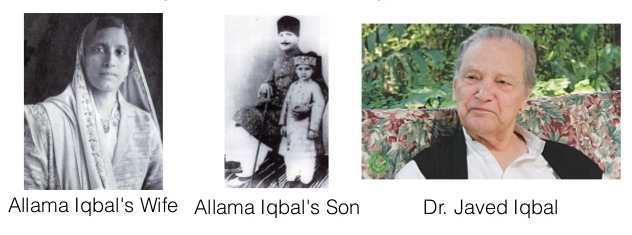


Further Studies
Allama Muhammad Iqbal was impacted by the lessons of Sir Thomas Arnold, his philosophy educator at Government School Lahore. Arnold’s lessons decided Iqbal to seek after advanced education in the West, and in 1905, he headed out to England for that reason. He qualified for a studentship from Trinity College, University of Cambridge and attained Bachelor of Arts in 1906. In 1907, he relocated to Germany to attain his medical studies, and received a Doctor of Philosophy gradation from the Ludwig Maximilian University of Munich in 1908. Functioning under the direction of Friedrich Hommel, his doctoral theory titled The Development of Metaphysics in Persia was distributed. In the duration of his stay in Heidelberg in 1907, his German tutor Emma Wegenast educated him about Goethe’s Faust, Heine and Nietzsche. During his scholarship in Europe, Iqbal started to compose verse in Persian. He organized it since he trusted that he had found a simple approach to express his musings. He would compose constantly in Persian for the duration of his lifetime.
Allama Muhammad Iqbal, subsequent to finishing his Master of Arts degree in 1899, started his 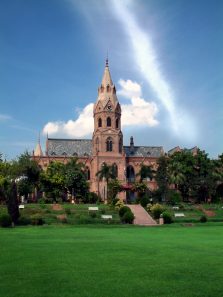

 vocation as a peruser of Arabic at Oriental College and before long was chosen as a junior lecturer of philosophy at Government College Lahore, where he had additionally been an understudy before. He taught there till he left for United Kingdom in 1905. In 1908, he came back from England and joined that school again as a teacher of philosophy and English writing. In the same era, he started providing legal counsel at Chief Court Lahore, yet he soon quit law practice and gave himself in scholarly works, turning into a dynamic individual from Anjuman-e-Himayat-e-Islam. In 1919, he turned into the general secretary of the same union.
vocation as a peruser of Arabic at Oriental College and before long was chosen as a junior lecturer of philosophy at Government College Lahore, where he had additionally been an understudy before. He taught there till he left for United Kingdom in 1905. In 1908, he came back from England and joined that school again as a teacher of philosophy and English writing. In the same era, he started providing legal counsel at Chief Court Lahore, yet he soon quit law practice and gave himself in scholarly works, turning into a dynamic individual from Anjuman-e-Himayat-e-Islam. In 1919, he turned into the general secretary of the same union.
Iqbal’s views and beliefs in his effort mainly emphasis on the divine path and growth of human civilization, balanced on experiences from his journeys and visits in Western Europe and the Middle East. He was significantly impacted by Western logicians, for example, Friedrich Nietzsche, Henri Bergson and Goethe.
The verse and rationality of Mawlana Rumi bore the most profound impact at the forefront of Iqbal’s thoughts. Profoundly grounded in religion ever since youthful, he started focusing seriously on the exploration of Islam, the way of life and antiquity of Islamic human improvement and its administrative prospect, while holding onto Rumi as his guide.
Iqbal’s verse has been converted into numerous European dialects, when his work was well known amid the beginning of the twentieth century. His Asrar-i-Khudi and Javed Nama were converted into English by R. A. Nicholson and A. J. Arberry correspondingly.
Urdu Writings
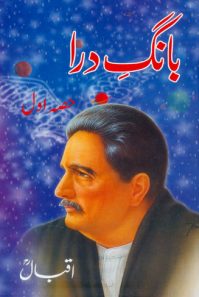

 Allama Iqbal’s Bang-e-Dara (The Call of the Marching Bell), his first accumulation of Urdu verse, was distributed in 1924. It was composed in three particular periods of his life. The lyrics he reviewed to 1905, that is the year he exited for England—reflect patriotism and symbolism of nature, including the Tarana-e-Hind (The melody of India), and Tarana-e-Milli (The tune of the Community). The second set of poetries date from 1905–1908, while Allama Muhammad Iqbal studied in Europe, and reside upon the environment of European civilization, which he highlighted had vanished divine and holy morals and ethics. This motivated Iqbal to compose ballads on the recorded and social legacy of Islam and the Muslim people group, with a worldwide point of view.Iqbal desires the whole Muslim people group, tended to as the Ummah, to characterize individual, societal and administrative presence by the qualities and lessons of Islam.
Allama Iqbal’s Bang-e-Dara (The Call of the Marching Bell), his first accumulation of Urdu verse, was distributed in 1924. It was composed in three particular periods of his life. The lyrics he reviewed to 1905, that is the year he exited for England—reflect patriotism and symbolism of nature, including the Tarana-e-Hind (The melody of India), and Tarana-e-Milli (The tune of the Community). The second set of poetries date from 1905–1908, while Allama Muhammad Iqbal studied in Europe, and reside upon the environment of European civilization, which he highlighted had vanished divine and holy morals and ethics. This motivated Iqbal to compose ballads on the recorded and social legacy of Islam and the Muslim people group, with a worldwide point of view.Iqbal desires the whole Muslim people group, tended to as the Ummah, to characterize individual, societal and administrative presence by the qualities and lessons of Islam.
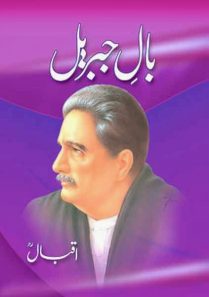

 Iqbal’s works were in Persian for a large portion of his vocation, yet after 1930 his works were principally in Urdu. His works in this era were regularly particularly coordinated at the Muslim masses of India, with a considerably more grounded accentuation on Islam and Muslim profound and political revitalization. Circulated in 1935, the Bal-e-Jibril (Wings of Gabriel) is deliberated by numerous critics as his supreme Urdu verse, and was propelled by his trip to Spain, where he went by the landmarks and inheritance of the kingdom of the Moors. It comprises of ghazals, ballads, quatrains, sayings and conveys a solid feeling of religious enthusiasm.
Iqbal’s works were in Persian for a large portion of his vocation, yet after 1930 his works were principally in Urdu. His works in this era were regularly particularly coordinated at the Muslim masses of India, with a considerably more grounded accentuation on Islam and Muslim profound and political revitalization. Circulated in 1935, the Bal-e-Jibril (Wings of Gabriel) is deliberated by numerous critics as his supreme Urdu verse, and was propelled by his trip to Spain, where he went by the landmarks and inheritance of the kingdom of the Moors. It comprises of ghazals, ballads, quatrains, sayings and conveys a solid feeling of religious enthusiasm.
Persian
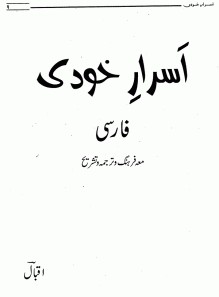

 Amongst his 12,000 verses, around 7,000 verses are in Persian. In 1915, he distributed his first assortment of verse, the Asrar-e-Khudi (Secrets of the Self) in Persian. The ballads stress the soul and self from a religious, otherworldly viewpoint. In Asrar-e-Khudi, Allama Muhammad Iqbal clarifies his rationality of “Khudi,” or “Self”. Iqbal’s utilization of the expression “Khudi” is identical with “Rooh” specified in the Holy Quran. “Rooh” is that heavenly catalyst which is existing in each human being, and was present in Adam, for which God ordered all of the angels to face down in front of Adam. One has to make an incredible voyage of revolution to comprehend and appreciate that godly soul.
Amongst his 12,000 verses, around 7,000 verses are in Persian. In 1915, he distributed his first assortment of verse, the Asrar-e-Khudi (Secrets of the Self) in Persian. The ballads stress the soul and self from a religious, otherworldly viewpoint. In Asrar-e-Khudi, Allama Muhammad Iqbal clarifies his rationality of “Khudi,” or “Self”. Iqbal’s utilization of the expression “Khudi” is identical with “Rooh” specified in the Holy Quran. “Rooh” is that heavenly catalyst which is existing in each human being, and was present in Adam, for which God ordered all of the angels to face down in front of Adam. One has to make an incredible voyage of revolution to comprehend and appreciate that godly soul.
In his Rumuz-e-Bekhudi (Hints of Selflessness), Iqbal tries to demonstrate the Islamic lifestyle is the best set of principles for a country’s suitability. A man must keep his discrete attributes in place, yet once this is accomplished he ought to relinquish his own desire for the requirements of the country.
English
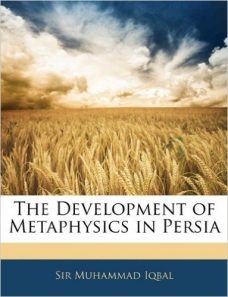

 Allama Muhammad Iqbal additionally composed two books on the subject of The Development of Metaphysics in Persia and The Reconstruction of Religious Thought in Islam and many letters in the English dialect. In these, he uncovered his musings with respect to Persian philosophy and Islamic Sufism, specifically, his convictions that Islamic Sufism actuates the seeking soul to an unrivaled view of life. He additionally talked about reasoning, God and the importance of petition, human soul and Muslim culture, and in addition other governmental, societal and religious issues.
Allama Muhammad Iqbal additionally composed two books on the subject of The Development of Metaphysics in Persia and The Reconstruction of Religious Thought in Islam and many letters in the English dialect. In these, he uncovered his musings with respect to Persian philosophy and Islamic Sufism, specifically, his convictions that Islamic Sufism actuates the seeking soul to an unrivaled view of life. He additionally talked about reasoning, God and the importance of petition, human soul and Muslim culture, and in addition other governmental, societal and religious issues.
Concept of Pakistan
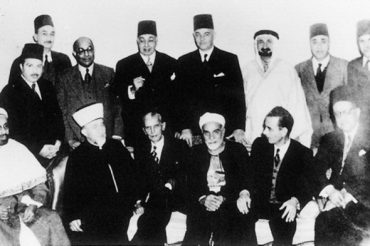

 Ideologically isolated from Congress Muslim pioneers, Iqbal had additionally been baffled with the lawmakers of the Muslim League attributable to the dissenting strife that tormented the League in the 1920s. Pioneers like Muhammad Shafi, Fazl-ur-Rahman and Iqbal had assurance in that only Muhammad Ali Jinnah was a governmental spearhead talented of conserving harmony and satisfying the League’s aims of Muslim political enablement.
Ideologically isolated from Congress Muslim pioneers, Iqbal had additionally been baffled with the lawmakers of the Muslim League attributable to the dissenting strife that tormented the League in the 1920s. Pioneers like Muhammad Shafi, Fazl-ur-Rahman and Iqbal had assurance in that only Muhammad Ali Jinnah was a governmental spearhead talented of conserving harmony and satisfying the League’s aims of Muslim political enablement.
Constructing a solid and private communication with Jinnah, Allama Muhammad Iqbal was a powerful strength in resounding Jinnah to finish his self-inflicted refugee in London, come back to India and take custody of the League. Iqbal confidently assumed that Jinnah was the only leading light proficient of drawing Indian Muslims to the League and preserving party unanimity previously the British and the Congress.
Last Stage of Life
In 1933, subsequent to coming back from an excursion to Spain and Afghanistan, Iqbal experienced a baffling throat illness. He consumed his last years serving Chaudhry Niaz Ali Khan to set up the Dar ul Islam Trust Institute at Jamalpur bequest close to Pathankot, where there were strategies to support educations in traditional Islam and modern social science. He likewise supported for an autonomous Muslim state. Iqbal stopped specializing law in 1934 and was allowed a retirement fund by the Nawab of Bhopal. In his last years, he habitually went to the Dargah of well-known Sufi Hazrat Ali Hajweri in Lahore for divine supervision.
After suffering for months through his sickness, Allama Muhammad Iqbal expired in Lahore on 21 April 1938. His tomb is situated in Hazuri Bagh, the encased garden between the passage of the Badshahi Mosque and the Lahore Fort, and authority gatekeepers are given by the Regime of Pakistan. Iqbal is honored generally in Pakistan, where he is regarded as the ideological planner of the state. His Tarana-e-Hind is a melody that is generally utilized as a part of India as an energetic tune discussing public congruity. His birthday is every year recognized in Pakistan as Iqbal Day, a national occasion. The administration and open associations have supported the foundation of instructive organizations, universities and schools devoted to Allama Muhammad Iqbal, and have set up the Iqbal Academy Pakistan to research, educate and safeguard his works, writing and reasoning. Allama Iqbal Stamps Society was built up for the advancement of Iqbaliyat in philately and in different side interests. His child Javed Iqbal has assisted as an equity on the Supreme Court of Pakistan. Javed Manzil was Iqbal’s last home.












